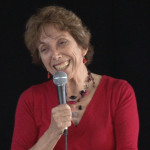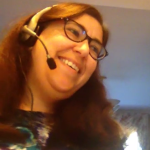My reading
Haftarah Parashat Va-y’chi
1 Kings 2:1 -12
2:1 וַיִּקְרְב֥וּ יְמֵֽי־דָוִ֖ד לָמ֑וּת וַיְצַ֛ו אֶת־שְׁלֹמֹ֥ה בְנ֖וֹ לֵאמֹֽר׃
2:2 אָנֹכִ֣י הֹלֵ֔ךְ בְּדֶ֖רֶךְ כָּל־הָאָ֑רֶץ וְחָזַקְתָּ֖ וְהָיִ֥יתָֽ לְאִֽישׁ׃
2:3 וְשָׁמַרְתָּ֞ אֶת־מִשְׁמֶ֣רֶת׀ יְהוָ֣ה אֱלֹהֶ֗יךָ לָלֶ֤כֶת בִּדְרָכָיו֙ לִשְׁמֹ֨ר חֻקֹּתָ֤יו מִצְוֹתָיו֙ וּמִשְׁפָּטָ֣יו וְעֵדְוֹתָ֔יו כַּכָּת֖וּב בְּתוֹרַ֣ת מֹשֶׁ֑ה לְמַ֣עַן תַּשְׂכִּ֗יל אֵ֚ת כָּל־אֲשֶׁ֣ר תַּֽעֲשֶׂ֔ה וְאֵ֛ת כָּל־אֲשֶׁ֥ר תִּפְנֶ֖ה שָֽׁם׃
2:4 לְמַעַן֩ יָקִ֨ים יְהוָ֜ה אֶת־דְּבָר֗וֹ אֲשֶׁ֨ר דִּבֶּ֣ר עָלַי֮ לֵאמֹר֒ אִם־יִשְׁמְר֨וּ בָנֶ֜יךָ אֶת־דַּרְכָּ֗ם לָלֶ֤כֶת לְפָנַי֙ בֶּאֱמֶ֔ת בְּכָל־לְבָבָ֖ם וּבְכָל־נַפְשָׁ֑ם לֵאמֹ֕ר לֹֽא־יִכָּרֵ֤ת לְךָ֙ אִ֔ישׁ מֵעַ֖ל כִּסֵּ֥א יִשְׂרָאֵֽל׃
2:5 וְגַ֣ם אַתָּ֣ה יָדַ֡עְתָּ אֵת֩ אֲשֶׁר־עָ֨שָׂה לִ֜י יוֹאָ֣ב בֶּן־צְרוּיָ֗ה אֲשֶׁ֣ר עָשָׂ֣ה לִשְׁנֵֽי־שָׂרֵ֣י צִבְא֣וֹת יִ֠שְׂרָאֵל לְאַבְנֵ֨ר בֶּן־נֵ֜ר וְלַעֲמָשָׂ֤א בֶן־יֶ֙תֶר֙ וַיַּ֣הַרְגֵ֔ם וַיָּ֥שֶׂם דְּמֵֽי־מִלְחָמָ֖ה בְּשָׁלֹ֑ם וַיִּתֵּ֞ן דְּמֵ֣י מִלְחָמָ֗ה בַּחֲגֹֽרָתוֹ֙ אֲשֶׁ֣ר בְּמָתְנָ֔יו וּֽבְנַעֲל֖וֹ אֲשֶׁ֥ר בְּרַגְלָֽיו׃
2:6 וְעָשִׂ֖יתָ כְּחָכְמָתֶ֑ךָ וְלֹֽא־תוֹרֵ֧ד שֵׂיבָת֛וֹ בְּשָׁלֹ֖ם שְׁאֹֽל׃
2:7 וְלִבְנֵ֨י בַרְזִלַּ֤י הַגִּלְעָדִי֙ תַּֽעֲשֶׂה־חֶ֔סֶד וְהָי֖וּ בְּאֹכְלֵ֣י שֻׁלְחָנֶ֑ךָ כִּי־כֵן֙ קָרְב֣וּ אֵלַ֔י בְּבָרְחִ֕י מִפְּנֵ֖י אַבְשָׁל֥וֹם אָחִֽיךָ׃
2:8 וְהִנֵּ֣ה עִ֠מְּךָ שִֽׁמְעִ֨י בֶן־גֵּרָ֥א בֶן־הַיְמִינִי֮ מִבַּחֻרִים֒ וְה֤וּא קִֽלְלַ֙נִי֙ קְלָלָ֣ה נִמְרֶ֔צֶת בְּי֖וֹם לֶכְתִּ֣י מַחֲנָ֑יִם וְהֽוּא־יָרַ֤ד לִקְרָאתִי֙ הַיַּרְדֵּ֔ן וָאֶשָּׁ֨בַֽע ל֤וֹ בַֽיהוָה֙ לֵאמֹ֔ר אִם־אֲמִֽיתְךָ֖ בֶּחָֽרֶב׃
2:9 וְעַתָּה֙ אַל־תְּנַקֵּ֔הוּ כִּ֛י אִ֥ישׁ חָכָ֖ם אָ֑תָּה וְיָֽדַעְתָּ֙ אֵ֣ת אֲשֶׁ֣ר תַּֽעֲשֶׂה־לּ֔וֹ וְהוֹרַדְתָּ֧ אֶת־שֵׂיבָת֛וֹ בְּדָ֖ם שְׁאֽוֹל׃
2:10 וַיִּשְׁכַּ֥ב דָּוִ֖ד עִם־אֲבֹתָ֑יו וַיִּקָּבֵ֖ר בְּעִ֥יר דָּוִֽד׃
2:11 וְהַיָּמִ֗ים אֲשֶׁ֨ר מָלַ֤ךְ דָּוִד֙ עַל־יִשְׂרָאֵ֔ל אַרְבָּעִ֖ים שָׁנָ֑ה בְּחֶבְר֤וֹן מָלַךְ֙ שֶׁ֣בַע שָׁנִ֔ים וּבִירוּשָׁלִַ֣ם מָלַ֔ךְ שְׁלֹשִׁ֥ים וְשָׁלֹ֖שׁ שָׁנִֽים׃
2:12 וּשְׁלֹמֹ֕ה יָשַׁ֕ב עַל־כִּסֵּ֖א דָּוִ֣ד אָבִ֑יו וַתִּכֹּ֥ן מַלְכֻת֖וֹ מְאֹֽד׃










